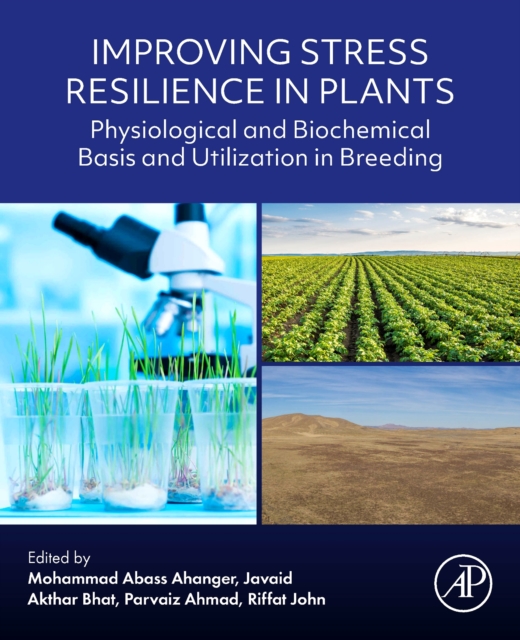
Improving Stress Resilience in Plants : Physiological and Biochemical Basis and Utilization in Breeding Paperback / softback
Edited by Mohammad (Assistant Professor, Xishuangbanna Tropical Botanical Garden, Chinese Acade Abass Ahanger, Javaid Akthar (Associate Professor, International Genome Centre, Jiangsu University, China) Bhat, Parvaiz (Department of Botany, Govt Degree College Pulwama, Jammu and Kashmir India; Departme Ahmad, Riffat (Senior Assistant Professor, Department of Botany, University of Kashmir, India) John
Paperback / softback
Description
Improving Stress Resilience in Plants: Physiological and Biochemical Basis and Utilization in Breeding addresses the urgent need for improved understanding of major plant stress tolerance mechanisms, the identification of the genes, and gene products that are key to improving those mechanisms and means of optimizing those genes through molecular approaches.
With a focus on plant physiological and biochemical attributes at both cellular and whole plant levels, this book includes the latest information on crosstalk between the various signaling molecules and quantitative trait locus (QTL).
Further, it explores the extension of these mechanisms to breeding approaches, confirming overall understanding and inspiring further research.
Written by a team of global experts, and presented in three thematic sections, the book provides insights into physical adaptations, metabolism and pathways, and breeding techniques including CRISPR and conventional approaches to reduce the negative effects of stresses and improve crop yield even under stress conditions.
It is an ideal resource for researchers, academics and advanced students seeking to improve stress tolerance among crop plants and developing key future strategies for sustainable food production.
Information
-
Available to Order - This title is available to order, with delivery expected within 2 weeks
- Format:Paperback / softback
- Pages:504 pages
- Publisher:Elsevier Science Publishing Co Inc
- Publication Date:23/11/2023
- Category:
- ISBN:9780443189272
Information
-
Available to Order - This title is available to order, with delivery expected within 2 weeks
- Format:Paperback / softback
- Pages:504 pages
- Publisher:Elsevier Science Publishing Co Inc
- Publication Date:23/11/2023
- Category:
- ISBN:9780443189272






